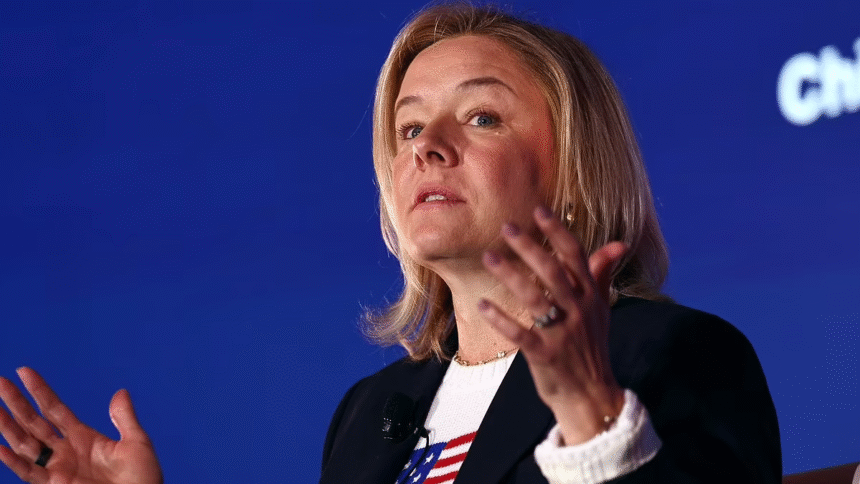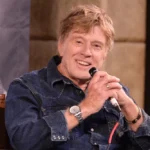In a historic first, Sarah Hirshland became the inaugural woman to serve as Chief Executive Officer of the United States Olympic & Paralympic Committee (USOPC) — a milestone achievement that symbolizes more than just personal triumph. Her appointment in 2018 marked a pivotal moment for the Olympic movement in America, a declaration that leadership in elite sport must evolve in tandem with the ideals it represents: equity, excellence, and progress.
Since then, Hirshland has faced extraordinary challenges, from rebuilding public trust after a devastating athlete abuse scandal to guiding Team USA through a global pandemic and beyond. Along the way, she’s redefined what it means to lead in one of the most high-profile, high-pressure roles in American sport.
Her story is not just about shattering a glass ceiling — it’s about reconstructing the building altogether.
A Disrupted Institution Meets a Disruptive Leader
When Hirshland stepped into her role, the USOPC was at a crossroads. The organization had been deeply shaken by the Larry Nassar scandal — a systemic failure that exposed egregious misconduct within U.S. Gymnastics and cast a long shadow over all governing bodies under the Olympic umbrella.
Athletes were furious. Sponsors were nervous. The public was outraged. The institution needed change, not just in policies, but in principles.
Enter Sarah Hirshland.
A seasoned executive from the U.S. Golf Association and the Wasserman Media Group, Hirshland brought a fresh, outside perspective to an organization mired in internal politics and outdated frameworks. Her background in marketing, athlete relations, and organizational strategy made her uniquely suited to not just weather the storm — but reshape the ship entirely.
And she did so with quiet strength, methodical clarity, and a deep belief in athlete-first leadership.
Rebuilding Trust, One Policy at a Time
Hirshland’s early days were defined by a singular mission: restore credibility.
The first phase of her tenure focused on reform and restitution. She worked closely with Congress, athlete advocates, and legal advisors to expand SafeSport protections and ensure independent oversight in abuse cases. She oversaw the creation of the U.S. Center for SafeSport, an autonomous body tasked with investigating and adjudicating athlete abuse complaints across Olympic and Paralympic sports.
These reforms weren’t cosmetic. They were structural — embedded in how funding is distributed, how coaches are vetted, and how athletes report issues. Under Hirshland, transparency became a mantra. Victims were listened to, policy gaps were closed, and survivor voices helped inform systemic overhaul.
It wasn’t just about fixing the past. It was about building a future where athlete safety and well-being were inseparable from performance and patriotism.
Tokyo 2020: Leadership Under Crisis
If athlete protection was the moral test of her leadership, the COVID-19 pandemic was the logistical one.
The postponement of the Tokyo 2020 Olympics upended years of planning and placed enormous strain on athletes, federations, and fans. Hirshland’s team had to make impossible decisions on the fly — balancing public health, athlete training, international diplomacy, and economic fallout.
She spearheaded the formation of Task Forces to assess safe training environments, collaborated with the IOC to ensure athlete eligibility for the delayed Games, and coordinated mental health support for athletes in prolonged uncertainty.
Perhaps most notably, she stood publicly and unapologetically with athletes, stating:
“This is about human beings first, Olympians second. We will not ask them to compromise their safety for a schedule.”
When the Games finally took place in 2021, Team USA delivered a powerful performance — topping the medal table, but more importantly, competing with dignity, inclusivity, and grace under pressure. The moment was as much a triumph of resilience as it was of sport.
Elevating Paralympians and Expanding Equity
Another defining feature of Hirshland’s leadership has been her unwavering commitment to inclusion — not just in words, but in infrastructure.
Under her tenure, the USOC officially added “Paralympic” to its name, becoming the U.S. Olympic & Paralympic Committee — a symbolic yet substantive shift toward elevating adaptive athletes to equal status.
This rebranding wasn’t hollow. It was backed by policy changes, funding adjustments, and storytelling campaigns that centered Paralympic athletes as elite competitors, not second-tier representatives.
Hirshland pushed for equal medal bonuses between Olympians and Paralympians, expanded training resources for adaptive sports, and worked to include more Paralympic representatives in leadership and decision-making roles.
Her leadership marked a clear shift: being inclusive wasn’t just a branding tool — it was a moral imperative and strategic advantage.
The Athlete Voice: From Peripheral to Central
Perhaps the most radical — and yet most necessary — shift Hirshland made was to place athletes at the center of the conversation, not the periphery.
She strengthened the Athletes’ Advisory Council, giving it more power and access to governance decisions. Athlete representation on committees increased. Policies related to selection, funding, and eligibility were revisited to prioritize fairness and transparency.
She also championed freedom of expression, advocating for thoughtful review of Rule 50 — the Olympic Charter rule that limited political gestures or statements during competition. At a time when athletes like Gwen Berry and Noah Lyles were speaking out on race, mental health, and equity, Hirshland argued that the USOPC had a responsibility to support their humanity, not silence it.
And perhaps most memorably, she stood behind Simone Biles during the Tokyo Games, when the gymnast withdrew from several events citing mental health challenges. Hirshland’s public support sent a clear message: athlete well-being matters more than medals.
Challenges Ahead: LA 2028 and the Next Generation
With the Los Angeles 2028 Summer Games on the horizon, Hirshland’s leadership will continue to be tested. She must now pivot from crisis management to long-term visioning — preparing Team USA to host the world on home soil.
Her priorities moving forward include:
- Sustainable Games Planning: Working with LA28 organizers to ensure the Games are cost-effective, community-focused, and climate-conscious.
- Digital Engagement: Modernizing how the USOPC connects with fans, particularly younger generations, through content, social media, and tech innovation.
- NIL and Athlete Compensation: Navigating the emerging landscape of name, image, and likeness (NIL) rights for Olympic athletes, many of whom are now building personal brands.
- Diversity in Coaching and Governance: Pushing for inclusive hiring across coaching ranks, board members, and staff leadership — ensuring the Olympic movement reflects America’s diversity.
Hirshland knows that hosting a successful Olympic Games is no longer just about facilities and fireworks — it’s about leaving a legacy that transforms communities, supports athletes long-term, and strengthens public trust in the Olympic ideal.
Style of Leadership: Calm, Calculated, Courageous
Sarah Hirshland’s leadership style is marked by a calm exterior that masks steely resolve. She doesn’t shout from podiums or seek media adulation. Instead, her power lies in precision, patience, and persuasion.
Colleagues describe her as meticulous and deeply principled. She listens intently, consults broadly, and makes decisions that are unpopular if they’re right.
In a sporting world often obsessed with charisma and bravado, Hirshland brings a refreshing brand of quiet leadership — one that believes progress is built brick by brick, not just announced on a press release.
A Legacy Still in Motion
Sarah Hirshland’s place in Olympic history is already secured: the first woman to lead the USOPC. But her true legacy will be determined not by headlines or even medal counts, but by whether she leaves the movement stronger, safer, and more inclusive than she found it.
In many ways, she’s not just leading a sports committee. She’s reshaping a national symbol — one that represents excellence, opportunity, and unity.
And in doing so, Hirshland has become more than a CEO. She’s become a steward of a global ideal — one that dares to dream that sport can still be a force for good, for fairness, and for change.
As the Olympic flame moves toward Los Angeles, and new generations of athletes prepare to carry America’s hopes and dreams, Sarah Hirshland will be there — not in the spotlight, but behind the scenes, breaking barriers, building trust, and ensuring that Team USA competes with not just strength, but conscience.
And that, perhaps, is the most powerful gold medal standard of all.









